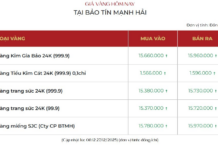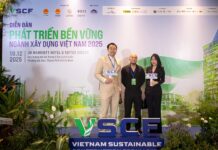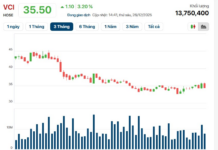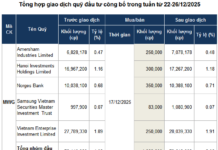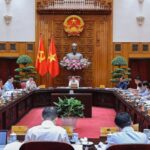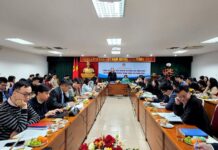At the Fitch on Vietnam 2025 event, Mr. Oliver Massmann recalled that as early as the late 1990s, he had compiled a 400-page memorandum on the role of the private sector and the privatization of state-owned enterprises. At that time, this document was not allowed to be published. After more than 20 years, Vietnam officially placed the private sector at the center of the national development strategy with Resolution 68. According to him, this is a historic change, affirming that private enterprises are no longer auxiliary but have become the main driving force for growth, innovation, and digital transformation.

Mr. Oliver Massmann
|
Resolution 68 creates a shift in management thinking. Enterprises are now entitled to participate in all non-prohibited sectors, and any restrictions must be based on transparent legal grounds instead of arbitrary imposition. The long-standing “request-approval” mechanism needs to be eliminated. Another novelty is the training program for 10,000 CEOs, aiming to overcome leadership capacity limitations, which used to be a development bottleneck.
According to Mr. Massmann, administrative reform is also an important pillar. Resolution 68 sets the target of reducing at least 30% of licensing procedures by 2025. At the same time, modernize public administration with artificial intelligence, big data, and synchronize the application of laws between localities to create consistency, helping businesses confidently invest regardless of where they are based.
The government also offers tax incentives, encourages startups, venture capital, and innovation. These changes indicate a new generation of leaders is emerging, with 40% of officials retired, paving the way for a more modern approach to planning and management.
“I believe that Resolution 68 clearly demonstrates a change in the thinking of the Vietnamese government. A new generation of leaders is emerging, bringing dynamism to the country’s advancement,” said the expert.
However, Mr. Massmann emphasized that the success of any policy depends on consistent implementation. For example, in the energy sector, Vietnam has a power development plan and policies to encourage a green transition, but the implementation progress is still slow. If the gap between policy and reality is not narrowed, it will be challenging to attract private capital for large-scale projects such as offshore wind power, smart transmission grids, or storage infrastructure.
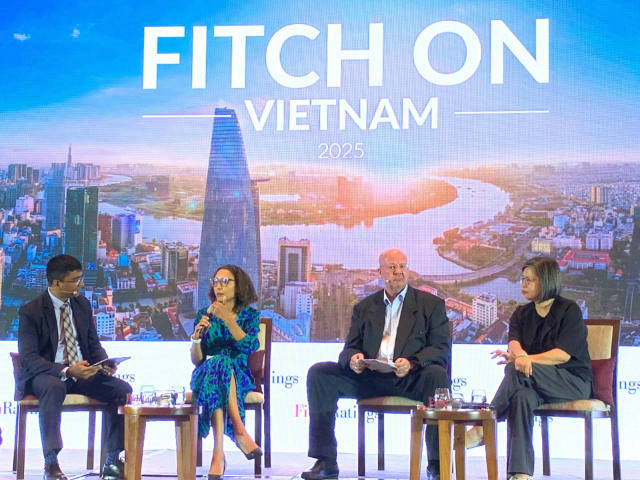
From left to right: Mr. Muralidharan Ramakrishnan, Ms. Maria João Pateguana, Mr. Oliver Massmann, and Ms. Kah Ling Chan at the Fitch on Vietnam 2025 event on August 28 – Photo: Tu Kinh
|
Mr. Massmann added that even with good policies, Vietnam still needs to address specific barriers to becoming an emerging market. The three “homework assignments” to be solved include eliminating the requirement for full cash margin before placing an order, removing foreign ownership limits, and publishing financial information in English. Delays or lack of transparency in data disclosure make international organizations hesitant, reducing the attractiveness of the capital market.
Mr. Muralidharan Ramakrishnan, Senior Director of Fitch Ratings, also emphasized that in infrastructure, especially energy, the challenge is not the lack of projects but the implementation. Vietnam needs hundreds of billions of USD to meet its growth needs, but to attract private capital, the legal framework must be stable, predictable, and consistently applied.
Meanwhile, Ms. Kah Ling Chan, Head of Industrial, Real Estate, and Consumer Sectors at Fitch Ratings, opined that domestic demand will continue to be the long-term growth driver, but traditional industries need to innovate significantly. The shift to a digital model and ensuring affordable housing for young people will only succeed if policies are implemented smoothly and synchronously.
Mr. Massmann gave a comparative example: even in Germany, electric taxis are not popular, while in Vietnam, electric cars are already familiar. VinFast has emerged as a pioneer, and Vietnam has the opportunity to form a complete supply chain, from battery production to charging infrastructure. But to turn potential into reality, a smart infrastructure ecosystem and operating mechanism are needed, not just policy commitments.
The speakers agreed that Vietnam has promulgated many progressive and reform-oriented policies, but implementation is the “bottleneck” that determines success. As Mr. Massmann emphasized, the question is not how many new policies there should be, but how to turn existing documents into consistent, transparent, and predictable actions. Only then can Vietnam fully exploit its advantages in demographics, geography, and FDI attraction to join the ranks of emerging economies.
Vietnam is the Cheapest Country for Expats for the 5th Year Running.
“With its reasonable cost of living, Vietnam continues to top the charts as one of the most affordable countries in the world, according to InterNations’ latest survey. Expats have praised the country for offering a high quality of life at a fraction of the cost of other nations. From affordable accommodation to inexpensive dining options and low transportation fees, Vietnam presents an attractive proposition for those seeking a financially manageable yet enriching expat experience.”
Unlocking Transformational Projects: The Power of Strategic Public Investment
Let me know if you would like me to continue refining this title or provide additional content suggestions to ensure it truly stands out.
On the morning of September 3rd, Prime Minister Pham Minh Chinh chaired a meeting of the Government’s Standing Committee to discuss and provide feedback on reports pertaining to the economy, society, state budget, and public investment. The aim was to consolidate these reports and present them to the relevant authorities.
Dr. Nguyen Thi Phuong Thao: A Tribute to Her Daily Revolutionary Impact on Vietnam
Dr. Nguyen Thi Phuong Thao, a prominent figure in Vietnam’s private sector, delivered a speech at the grand ceremony celebrating the inauguration and groundbreaking of 80 landmark projects nationwide, commemorating the country’s 80th anniversary.










